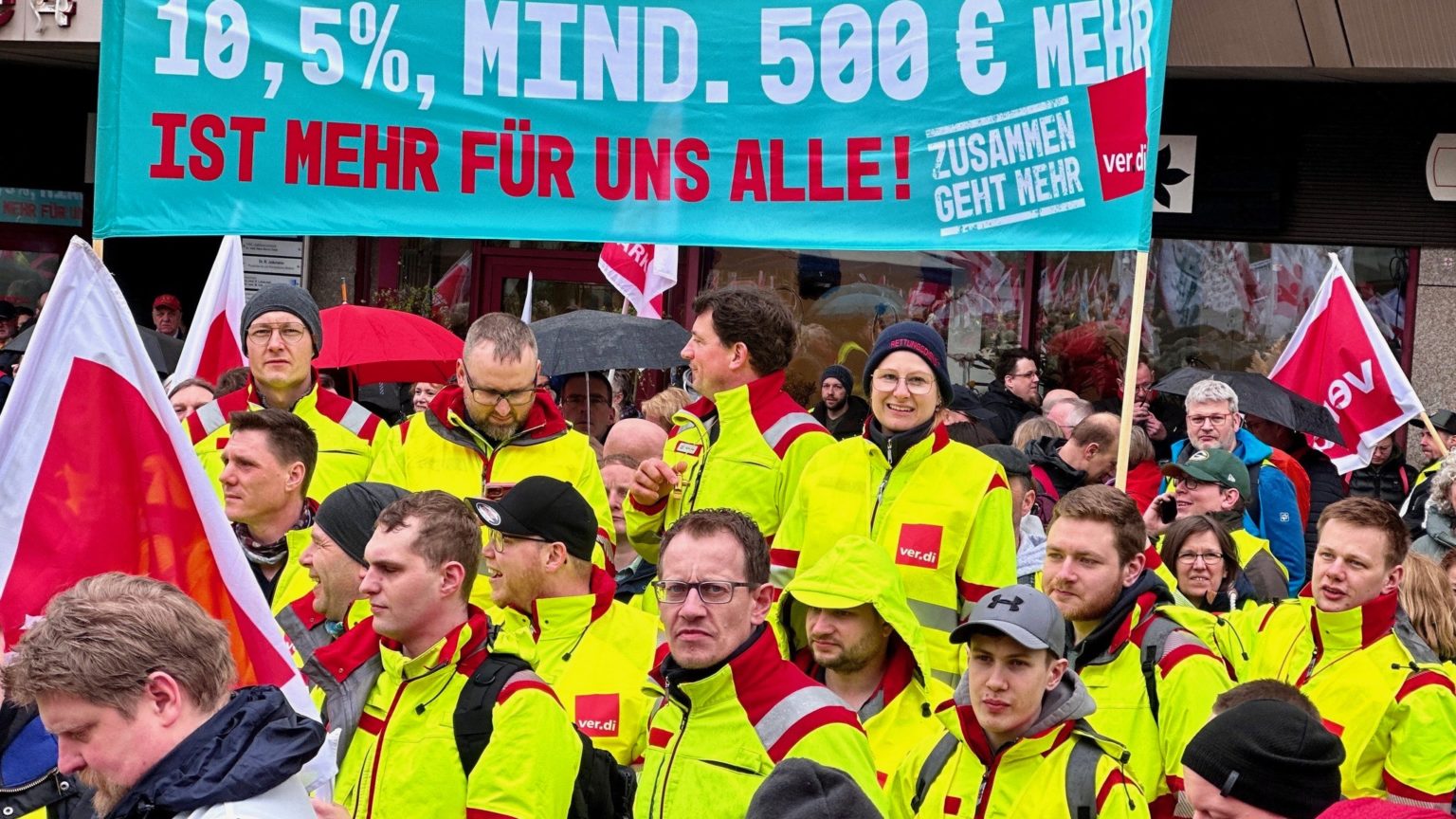After a year of labor actions and demands for higher wages to combat high inflation, negotiations between trade unions and employers at the municipal and federal levels head into their third round next week.

(Ver.di NRW via People’s Dispatch)
Public sector workers across Germany continue their protests and strikes demanding an increase in wages. On Tuesday, tens of thousands went on strike, raising their demands for the third round of negotiations between trade unions and employers at the municipal and federal levels, which are scheduled to start on March 27.
The trade union Ver.di has reiterated its demand for a 10.5 percent increase — worth at least 500 Euros ($539.25 — in the wages of the 2.5 million public sector workers to help them cope with the high levels of inflation.
According to Junge Welt, 2,500 people came to the strike rally in Munich’s Marienplatz on Tuesday and more than 10,000 workers across Bavaria were on strike. Ver.di stated that, in the German state of North Rhine-Westphalia alone, more than 40,000 employees were out on the streets as part of strikes and mobilizations.
Strikes have led to hundreds of flights to and from four German airports being canceled. The walkouts are part of a wider scenario of industrial action called by the public sector union Verdi.
— DW News (@dwnews) March 17, 2023
Earlier, on March 14 and 15, workers in the public health services — including hospitals, psychiatry, nursing facilities and emergency services — in various German cities went on a two-day warning strike, demanding fair contracts, an increase in wages and more staff and resources.
On Feb. 9, public service workers from various sectors — including health care, day-care, city administration, public transport, water distribution, universities and municipal waste management — also went on a warning strike protesting low wages and poor working conditions.
For more than a year, workers in Germany have been demanding an increase in wages to combat high inflation. The German government, currently led by Chancellor Olaf Scholz, has, however, not heeded the demands of workers, even as it has sent funds, arms, and ammunition to Ukraine.
As it was predicted from the very start of the SMO:
Thousands of German medical workers took to the streets of Berlin to take part in a nationwide strike.
Health sector workers are demanding higher wages, more staff and more resources. pic.twitter.com/8f33b0EMru
— SOS-UK-Report (@sosReports) March 17, 2023
Earlier, citing the annual report of the Federal Statistical Office, Ver.di said that “real wages have fallen in the country for the third year in a row. Even though wages have gone up compared to the previous year, inflation will be more than double that in 2022, nearly 8 percent.”
On March 21, following the strike mobilizations, Ver.di said that “Just before the third round of negotiations, we will show the employers what we expect from them at the negotiations starting next Monday: that they will finally deal with your demands and pay you the respect you deserve!”
This article is from Peoples Dispatch.

Will the German state ignore them, or beat them, and then ignore them?